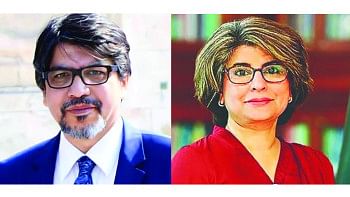Nazimuddin fuelled the flames
Pakistan faced a fresh crisis when Prime Minister Liaquat Ali Khan was assassinated on October 16, 1951 at a public meeting in Rawalpindi. Happening three years after the death of the country's founder Mohammad Ali Jinnah, the assassination created a sudden vacuum in the national leadership in the sense that after Jinnah and Liaquat, hardly any politician of similar stature was around. A curious development then took place. Khwaja Nazimuddin, who had been governor general since Jinnah's death, quickly took over as prime minister in succession to Liaquat. The finance minister, Ghulam Mohammad, became the new governor general.
The changes at the centre did not, of course, affect the Bengali struggle over the language issue. A kind of stalemate appeared to have come into the situation, but soon the issue took on a new dimension when Khwaja Nazimuddin, as prime minister, came down to Dhaka on a visit in January 1952. At a public rally on January 27, he reiterated the old case of the Pakistani establishment that in line with the Basic Principles Committee (BPC) report, only Urdu would be the state language of the country. East Bengal Chief Minister Nurul Amin, who was seated on the dais when Nazimuddin made his remarks, was clearly irritated by the governor general's remarks.
More than two decades later, following the liberation of Bangladesh, Nurul Amin would note:
“In the course of (Nazimuddin's) lengthy speech from a written script he mentioned that Urdu shall be the state language. The statement was not only uncalled for but also inconsistent with the stand of the Muslim League members of the CA (constituent assembly) from East Pakistan and the assurances received from a section of their counterparts from the West. It is also worth mentioning here that the prime minister seemed to have been so effectively briefed from interested quarters that he kept such an inflammable issue a guarded secret from me even and did not have the courtesy to consult me if it was a matter worth forming a subject of his speech in the meeting. I was sitting on the dais where he was speaking from and as soon as he uttered the sentence I could foresee its consequences. When I charged him after the meeting, he told me the briefing was prepared in Karachi.”

 For all latest news, follow The Daily Star's Google News channel.
For all latest news, follow The Daily Star's Google News channel. 



Comments